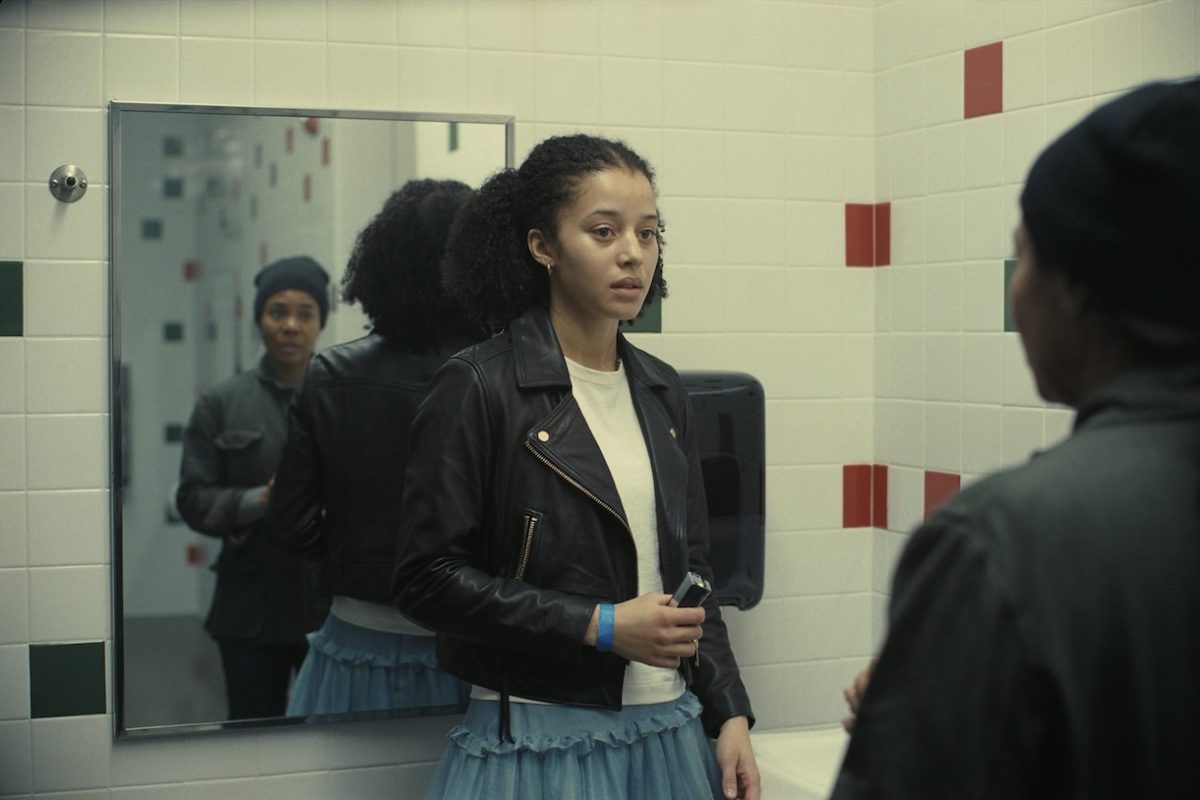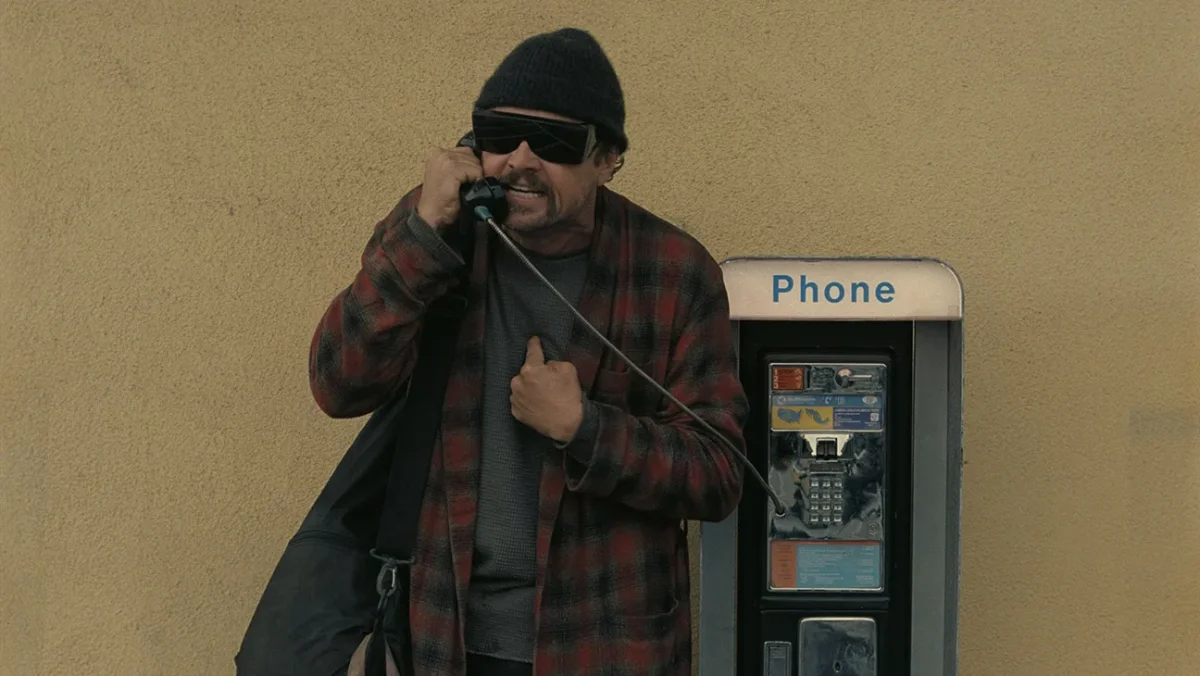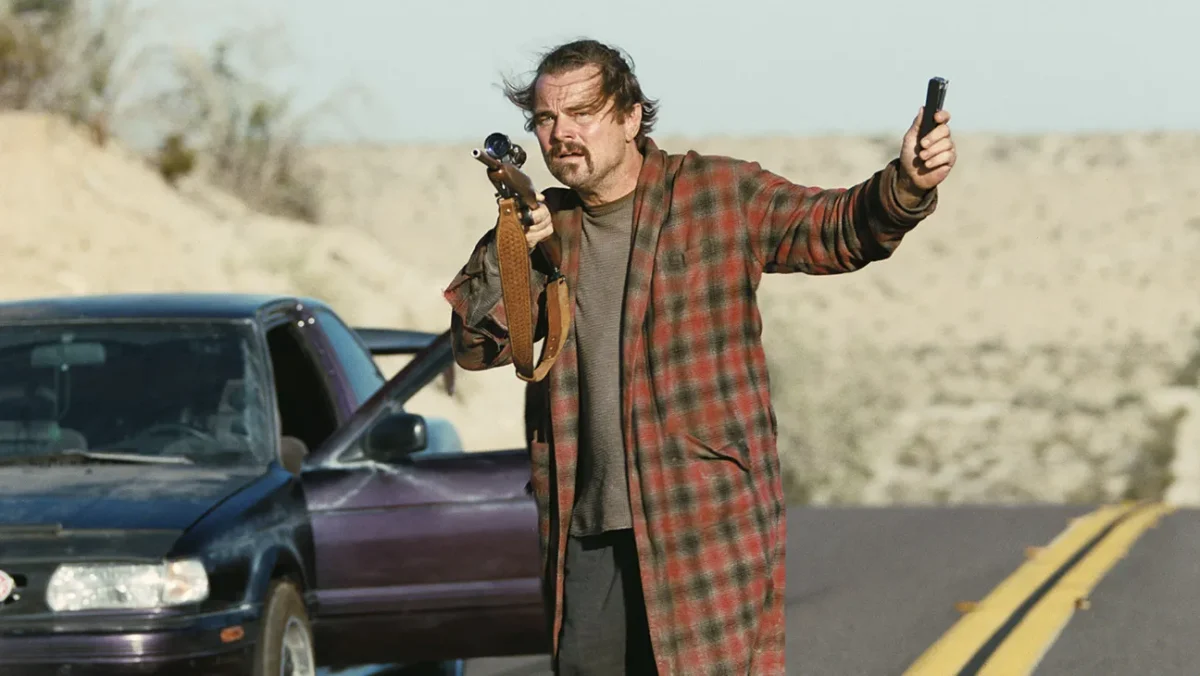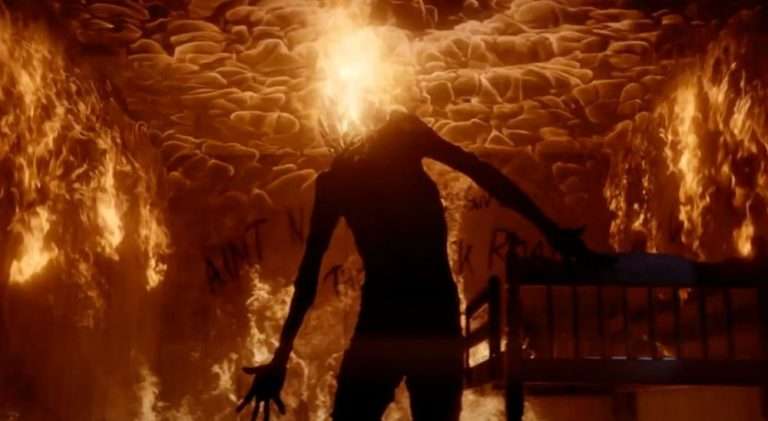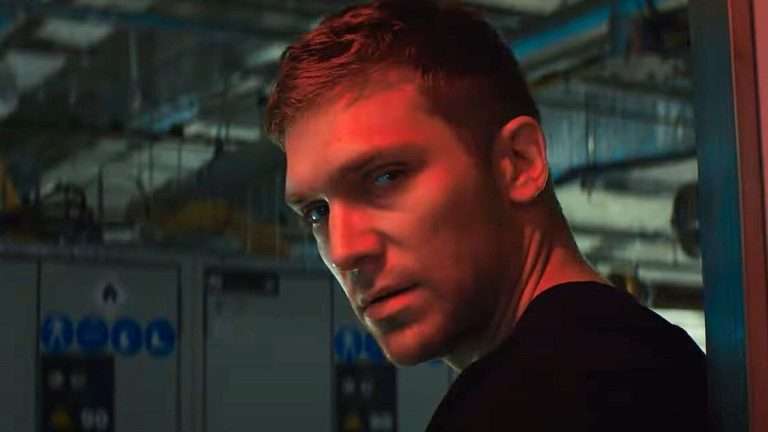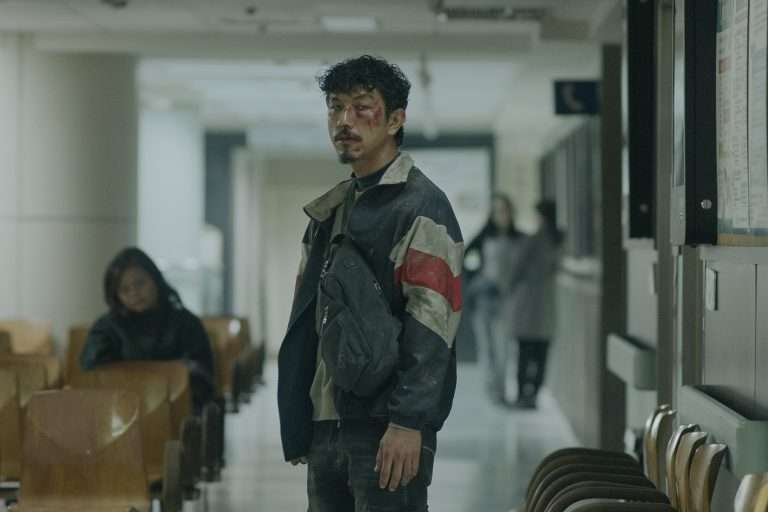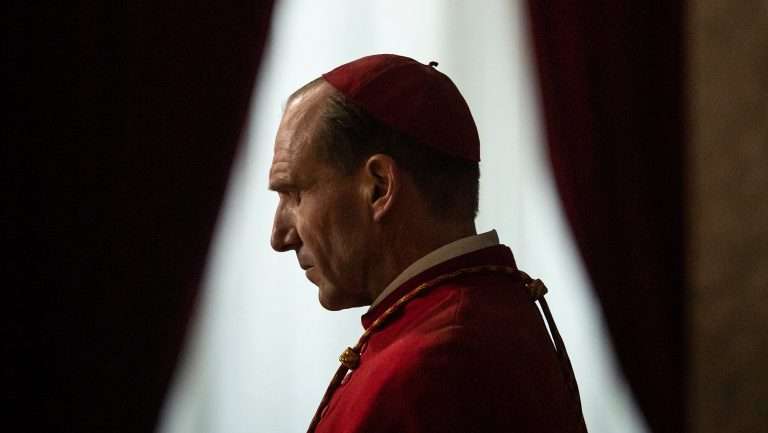Inspired by Thomas Pynchon’s “Vineland” and helmed by Paul Thomas Anderson, “One Battle After Another” unfolds as a thunderous political thriller fueled by feverish tension and razor-sharp writing. As the story barrels into its final act, every fragment of the narrative snaps into place. Bob Ferguson (Leonardo DiCaprio), desperate and fraying at the edges, races to the rendezvous point of the radical collective French 75, searching for his daughter Willa Ferguson (Chase Infiniti).
At the same moment, Colonel Steven J. Lockjaw (Sean Penn) hunts the same trail, driven not by loyalty or duty, but by fear and ego, determined to erase Willa and protect his crumbling reputation. What follows is a collision of chaos and consequence, a breathtaking crescendo where every character’s fate ignites in the same explosive moment. And when the smoke clears, the film leaves us suspended in a haunting quiet, drowning in questions that refuse to fade.
Spoilers Ahead
One Battle After Another (2025) Plot Summary & Movie Synopsis:
“One Battle After Another” opens inside the charged underground world of the revolutionary collective “French 75,” where tension, urgency, and defiance pulse through every frame. Among its most devoted members are Pat Calhoun (Leonardo DiCaprio) and Perfidia Beverly Hills (Teyana Taylor), who, along with their comrades, embark on missions designed to ignite a war of ideology and autonomy. From the outset, their movement carries a bold declaration: “We are a political organization that is free from the eyes, ears, and prison of the imperial state.” This proclamation becomes both their identity and their burden.
What Causes the Downfall of French 75?
During the early operations, the group crosses paths with Colonel Steven J. Lockjaw (Sean Penn), a man whose allegiance lies firmly with state power. Lockjaw becomes fascinated, almost obsessively so, by Perfidia from the moment he lays eyes on her, and his fixation slowly begins to entangle personal desire with military strategy. Meanwhile, the revolution continues gaining momentum until a turning point reshapes everything: Pat and Perfidia welcome a child, baby Charlene, whose arrival introduces vulnerability to a movement built on volatility and sacrifice.
Soon after, during a mission that collapses under pressure, Perfidia is captured. Faced with the fear of interrogation and prison time, she pleads with Lockjaw for mercy. However, instead of compassion, he demands betrayal. He asks for information about the identities and whereabouts of French 75 members. The consequences of this confrontation echo violently through the organization, leading to its collapse and forcing Pat and their infant daughter into hiding, now living under new identities as Bob and Willa Ferguson.
Why Does Lockjaw Come Back?
Sixteen years pass, and peace proves temporary. A racial-purification white supremacist organization known as the “Christmas Adventurers Club” begins to resurface, fueled by extremist ideology and determined to erase the remnants of “French 75.” As the threat escalates, authorities bring Lockjaw back into the fold to track down those tied to the old revolution. However, beneath his official assignment lies a deeply personal motive, particularly regarding Willa, whose existence threatens both his reputation and the buried sins of his past.
Upon learning of the impending danger, the scattered remnants of “French 75” covertly regroup and arrange for Willa to be transported to a hidden rendezvous point. At the same time, Bob discovers her disappearance and realizes that Lockjaw is closing in.
Now, the movie is a breathless race, spiraling through political paranoia, generational trauma, and the enduring weight of unfinished revolutions, as Bob fights to reach Willa before Lockjaw finds her. From here, the film charges forward toward its powerful climax, where every choice made in the past converges with the violence and desperation of the present, setting the stage for a confrontation that no one can walk away from unchanged.
One Battle After Another (2025) Movie Ending Explained:
Is Perfidia Alive? Where is She?
Perfidia Beverly Hills stands as the most complex and enigmatic figure in “One Battle After Another,” and the film’s ending devotes its emotional weight to her unresolved legacy. After betraying the members of French 75, she seemingly vanishes, not just from the revolution but from the lives of Pat and their daughter.
The film initially frames this disappearance as abandonment, reinforced through conflicting narratives from different characters. For Bob (formerly Pat), Perfidia’s departure becomes a story he reshapes, telling Willa that her mother had died a hero and that Lockjaw had killed her. Meanwhile, Lockjaw uses the same lie when interrogating Willa, asserting that her mother is indeed dead. For the surviving revolutionaries, however, Perfidia became synonymous with betrayal, a rat who traded her comrades for survival.
Find Out: What Francis Ford Coppola and Steven Spielberg Really Think of Paul Thomas Anderson’s One Battle After Another?
However, the film’s final scene dismantles these assumptions. After Lockjaw’s death, Bob finally hands Willa a letter written by Perfidia, where she writes to her daughter, “I think of you every single day. I know one day, when it is right and it is safe, you will find me,” confirming that her disappearance was not abandonment, but a strategic withdrawal. She adds, “I pretended to be strong and dead,” exposing that she knowingly orchestrated the belief in her death as a protective measure. After exposing the names of her accomplices, Perfidia was last seen in Mexico. However, it is unclear if she is still there.
What is clear is that the letter directly answers the central question of whether she is alive. She acknowledges failure, “We failed (your dad and I), maybe you will not,” pointing to the ideological collapse of French 75 and shifting responsibility for the revolution’s future to Willa’s generation. This reframes Perfidia not as a traitor fleeing guilt but as someone who stepped aside so her daughter could move forward without inherited danger.
The film emphasizes that this is not yet a safe time. The final scenes depict escalating MKU raids and the resurgence of extremist power. Under these conditions, Perfidia’s return would be tactically reckless. Her decision to disappear reflects not cowardice but long-term strategy. It suggests that she is preserving the next generation and protecting the revolution’s dormant potential. Her absence is therefore an act of resistance, like the core promise of French 75, and not surrender.
Whether Perfidia’s prior cooperation with Lockjaw constitutes betrayal becomes morally complicated in hindsight. She did betray names, and because of that, French 75 fell apart. But her motivation, that is, threat to her child, controlled captivity, and psychological coercion, is the critical context. The film refuses to let the audience settle comfortably on whether she is a hero or a villain. However, what is undeniable is her power: during her involvement, she was not merely a member but a formidable force, feared by both allies and enemies. Her exit shattered the revolution not because she was weak, but because she mattered too much.
Is Willa Ferguson Lockjaw and Perfidia’s Daughter?
Once baby Charlene is born, something shifts in Perfidia’s behavior. She grows erratic, ends up killing someone during a French 75 mission, and gets caught in the process. Before this, Perfidia is seen engaging sexually with Lockjaw. However, after she is captured, Lockjaw demands that she reveal the names of her people and forcefully makes her say, “It is because you love me. It is because you cannot live without me.” After the emergence of the Christmas Adventurers Club, it becomes brutally clear that Lockjaw specifically wants Willa, not for affection or reconciliation, but to confirm whether she is his daughter and, if so, eliminate her to wipe away any trace of his relationship with a woman of color.
He performs a DNA test on her, and once he learns that she is indeed his daughter, he tries to get her killed. One plausible explanation for Perfidia engaging sexually with Lockjaw is the safety of the revolution. Lockjaw was constantly sabotaging French 75 missions, but he also secretly desired Perfidia. So perhaps, to protect the mission, she got involved with him sexually and ended up becoming the mother of his child.
This thought is hinted at earlier in the movie, when Perfidia is visibly jealous of Charlene, seeing how weak she has become, and how devoted Pat is toward Charlene. Maybe it was the uncertainty of Willa’s father that made Perfidia feel so unsettled. Eventually, when she gets caught, she gives away the names of her people. Now she no longer has to stay with Lockjaw, so she leaves him. But she fears for Bob and Willa, so she escapes the country too. She knows Bob and Willa will be protected by the group, and she has no problem being remembered as a traitor or a rat if that is what keeps them alive.
Why does the Christmas Adventurers Club get Lockjaw killed?
Also Related: 10 Movies to Watch If You Liked ‘One Battle After Another’ (2025)
Sixteen years have passed since the dismantling of French 75, a white supremacist organization known as the Christmas Adventurers Club invites Lockjaw to join them. The group’s agenda is racial purification, and they believe Lockjaw, given his history, brutality, and influence, can help further their cause.
But everything changes when the possibility emerges that Lockjaw might be Willa’s biological father. The club immediately rejects him. These people are deeply conservative, violently racist, and cannot stand the idea of someone within their ranks having a mixed-race child. For them, it is contamination and not even something morally unacceptable. They simply cannot fathom the thought that one of their own carries blood they consider impure.
So while Lockjaw sets out to find and kill Willa to erase evidence of his past, the club assigns Tim, one of their most loyal members, to kill Lockjaw as well. Tim tracks him down and shoots him, believing he has finished the job. But Lockjaw survives, returns, and is soon confronted directly by the club about his sexual involvement with Perfidia.
In response, he tries to rewrite the narrative grotesquely and desperately, claiming that Perfidia had “raped him in reverse,” calling her a “semen demon,” attempting to place blame entirely on her and absolve himself. The club doesn’t buy it, not even for a second. They see through his lies, and more importantly, they see him as a threat to their ideological purity.
To get rid of him cleanly, they manipulate him into thinking he has been fully accepted into the group as a permanent member rather than a temporary replacement. They place him in a new office, where he is overwhelmed with pride, believing he has regained power and respect. But moments later, he senses something is wrong. The room is airtight and filled with poisonous gas. Lockjaw dies instantly. The club disposes of his body, burns him, and erases his existence without hesitation.
This brutal execution reinforces the extremist mindset of the Christmas Adventurers Club, how far they are willing to go to maintain their version of purity, and how violently they enforce conformity. To them, Lockjaw is no longer an asset. In fact, he is a stain, a betrayal of their ideology simply by fathering Willa. Even someone with his power is disposable the moment he threatens the illusion of racial superiority they worship.
Why Do Perfidia Betray French 75?
Perfidia’s betrayal of French 75 is a deeply layered act driven primarily by her need to protect her family and her sharp awareness of the revolution’s inevitable collapse. After the critical moment during a bank robbery, where she impulsively shoots a security guard, forcing the entire group to flee, Perfidia is captured. In custody, she is confronted with an ultimatum from Lockjaw: give up the names of her accomplices and enter witness protection, guaranteeing she avoids prison. Cornered and exhausted, she agrees, and that decision brands her a traitor in the eyes of her former comrades, even though Bob still chooses to regard her as a hero.
Several factors fuel Perfidia’s decision to betray French 75. Earlier in the film, she delivers the line, “Every revolution begins with fighting demons, but motherfuckers end up fighting themselves,” revealing her understanding that every movement eventually turns inward and devours itself. She senses French 75’s gradual unraveling and recognizes that internal fractures are already taking shape. She also knows Lockjaw’s pursuit of the revolution will not stop unless someone breaks the cycle. In her eyes, surrendering may prevent even greater destruction.
Perfidia’s familial instincts play a central role. She believes Bob and Willa, the child she had with Bob, are strong enough to survive without her, which makes the sacrifice bearable. Her choice is not driven by self-preservation alone, but by a determination to protect them from what she sees as an inevitable downfall. Her decision is strategic because by cooperating, she buys safety not only for herself, but also indirectly shields her family from Lockjaw’s reach.
Her betrayal is further tangled with her growing identity crisis, worsened by motherhood and the increasing instability within her. After becoming a mother, her violent impulses intensify, symbolizing the internal war between her revolutionary ideals and her personal life. The bank robbery, where she loses control and pulls the trigger, becomes the turning point that exposes how far she has drifted from the person she once claimed to be. The psychological tension between Perfidia and Lockjaw adds another dimension.
Their past relationship, twisted, coercive, and steeped in manipulation, blurs the lines between domination, fear, and emotional power. This dynamic influences her behavior during key moments leading up to the collapse of French 75. When she chooses to reveal names, it is not merely betrayal but a breaking point. It is somewhat an attempt to sever a toxic bond and escape Lockjaw’s grip permanently. It is fair to call this an act rooted in love, fear, and the burden of impossible choices, rather than simple treachery.
What happens to Bob, Willa, and Sensei?
In the final stretch of the movie, Willa is handed over to the bounty hunter Avanti by Lockjaw. However, she manages to escape after Avanti kills his own boss in a moment of chaos and rebellion. Stealing a car, she drives back to safety and reunites with Bob. This escape becomes a defining turning point for Willa, marking her transformation from a hunted teenager into someone ready to carry the weight of legacy and purpose. In her possession is the letter from Perfidia, where her mother asks her to carry forward the revolution when the time is right. This responsibility becomes the emotional center of Willa’s future, positioning her not just as a survivor but as the next leader.
Throughout the film, Willa is portrayed as a free-spirited, rebellious teen determined to shine despite all attempts to suppress her, including the threat from extremist groups like the Christmas Adventurers Club. And by the end, she has begun calling Bob “Dad,” a small but powerful moment signifying emotional acceptance and the solidification of their bond.
Bob, in contrast, is a man who once burned with revolutionary passion but is now living a quieter, more withdrawn life. During the film’s conclusion, he is affected by paranoia but remains a peaceful stoner, isolated in a sanctuary city and living off the grid. Seen slouched comfortably on the couch, constantly smoking, Bob represents someone who has stepped away from the fight after losing too much. His revolution has narrowed down to one priority: protecting Willa and keeping her alive. His happiness is grounded in reunion and safety rather than ideology. With Lockjaw finally gone, Bob can breathe again.
Sensei Sergio St. Carlos (Benicio del Toro), Willa’s karate teacher and community mentor, is arrested after helping Bob escape to the rendezvous point. Though he is taken by the police, the film strongly implies that he will likely face minimal charges. He has not killed anyone or committed violent acts; his role was rooted in community protection. His arrest appears more procedural than punitive, suggesting that he may be released and able to return to the community that respects him.
His storyline carries the film’s undercurrent of hope: consequences exist, but redemption is possible. In the end, the film closes on an optimistic note. Willa embraces her revolutionary heritage with a hopeful future, Bob settles into a quieter life while cherishing family, and Sensei appears to have a path forward despite his arrest. The promise of Perfidia reuniting with Willa when it becomes safe further reinforces the theme of hopeful continuity within the revolution and personal lives.
One Battle After Another (2025) Movie Themes Analyzed:
The Struggle of Being an Outsider
One of the most persistent and emotionally charged themes in “One Battle After Another” is the struggle of being an outsider in a country that proudly advertises freedom, yet historically excludes those who are not part of the dominant identity. The film uses French 75, a revolutionary group composed largely of immigrants, minorities, and marginalized voices, to expose the hypocrisy of a nation that claims equality but continues to uphold racism, xenophobia, and violence against outsiders. For French 75, America is not the land of opportunity but a battlefield where survival itself is a revolutionary act.
This theme surfaces powerfully in the moment when Sensei decides to help Bob, saying, “We’ve been laid siege for hundreds of years.” The line reinforces the generational trauma carried by communities that have faced systemic oppression and constant violence. Their revolution is a fight for the right to exist more than anything else.
The film continues to emphasize this struggle through Avanti, a Black bounty hunter hired to kill Willa. When Avanti refuses to murder her and instead kills his own boss, it becomes a defining moment of moral resistance from another outsider forced into systems designed to exploit him. His choice to break that cycle speaks to the buried humanity crushed by racism and power structures.
The theme reaches its most chilling articulation when Lockjaw discovers that Willa is his biological daughter and responds, “Being a Christmas Adventurer is a higher honor than having her.” His words reflect the extremist viewpoint that racial purity holds greater value than human connection, even paternal love. It exposes the monstrous logic of white supremacy: the rejection of one’s own blood if it threatens ideological identity. Across each storyline, the film portrays America as a warzone for outsiders, where every step forward is one battle after another, fought not for dominance, but simply for dignity and belonging.

